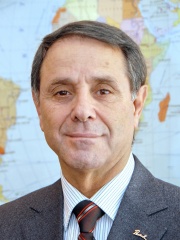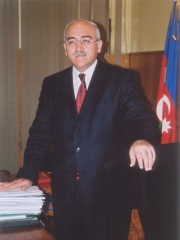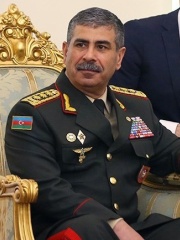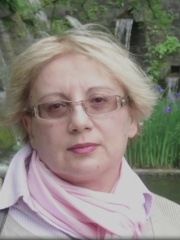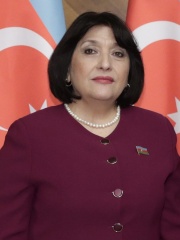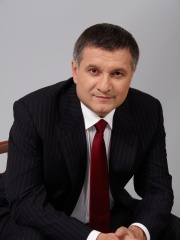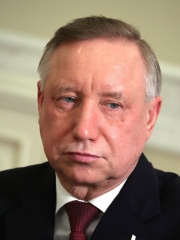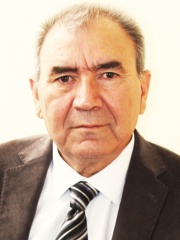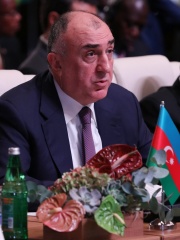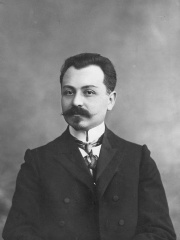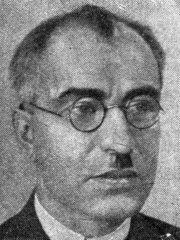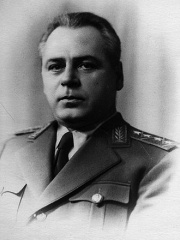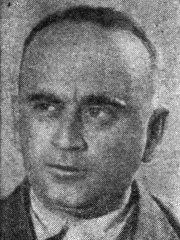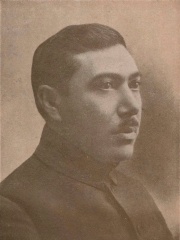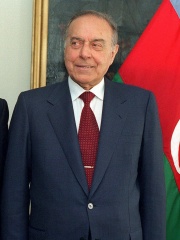
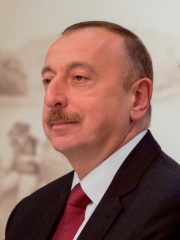
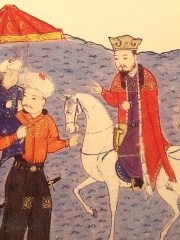
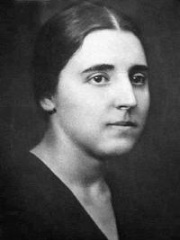
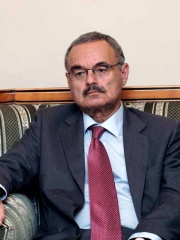
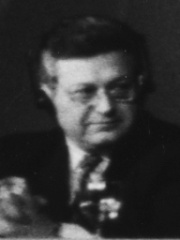
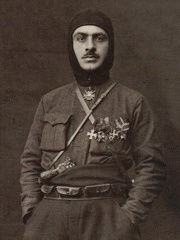
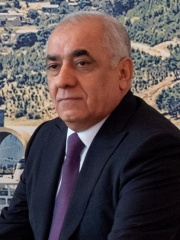
The Most Famous
POLITICIANS from Azerbaijan
This page contains a list of the greatest Azerbaijani Politicians. The pantheon dataset contains 19,576 Politicians, 40 of which were born in Azerbaijan. This makes Azerbaijan the birth place of the 77th most number of Politicians behind Ecuador, and North Macedonia.
Top 10
The following people are considered by Pantheon to be the top 10 most legendary Azerbaijani Politicians of all time. This list of famous Azerbaijani Politicians is sorted by HPI (Historical Popularity Index), a metric that aggregates information on a biography's online popularity. Visit the rankings page to view the entire list of Azerbaijani Politicians.

1. Heydar Aliyev (1923 - 2003)
With an HPI of 77.80, Heydar Aliyev is the most famous Azerbaijani Politician. His biography has been translated into 80 different languages on wikipedia.
Heydar Alirza oghlu Aliyev (10 May 1923 – 12 December 2003) was an Azerbaijani politician who was a Soviet party boss in the Azerbaijan Soviet Socialist Republic from 1969 to 1982, and the third president of Azerbaijan from 1993 to 2003. He was a high-ranking official in the KGB of the Azerbaijan SSR, serving for 28 years in Soviet state security organs (1941–1969). He governed Soviet Azerbaijan from 1969 to 1982 as First Secretary of the Communist Party of Azerbaijan. He held the post of First Deputy Premier of the Soviet Union from 1982 to 1987. He rose through the ranks due to his close associations with Leonid Brezhnev and Yuri Andropov. Aliyev was installed as president of Azerbaijan after the 1993 military coup ousted President Abulfaz Elchibey. Elchibey was a prominent Soviet dissident and Azerbaijani nationalist leader who had been elected as president in independent Azerbaijan's first free election in 1992. Aliyev's installation as president put an end to Azerbaijan's short post-independence democratic interlude. Shortly after taking charge, Aliyev organized a presidential election where he won nearly 99% of the vote. His regime in Azerbaijan has been described as dictatorial, authoritarian, and repressive. He was also said to have run a heavy-handed police state where elections were rigged and dissent was repressed. A cult of personality developed around Aliyev, which has continued after his death in 2003. Shortly before his death, his son Ilham Aliyev was elected president in a fraudulent election and continues to lead Azerbaijan to this day.

2. Ilham Aliyev (b. 1961)
With an HPI of 75.61, Ilham Aliyev is the 2nd most famous Azerbaijani Politician. His biography has been translated into 111 different languages.
Ilham Heydar oghlu Aliyev (born 24 December 1961) is an Azerbaijani politician who has been the fourth president of Azerbaijan since 2003. He has been the leader of the New Azerbaijan Party since 2005. He is the son of former Azerbaijani president Heydar Aliyev and became the country's president on 31 October 2003 after a two-month term as the prime minister of Azerbaijan, through a presidential election defined by irregularities, shortly before his father's death. Ilham Aliyev was re-elected for a second term in 2008 and was allowed to run in elections indefinitely in 2013, 2018 and 2024 due to the 2009 constitutional referendum, which removed term limits for presidents. He is also the husband of Mehriban Aliyeva, Vice President of Azerbaijan. Azerbaijan's oil-rich territory has significantly strengthened the stability of Aliyev's regime and enriched the nation's ruling elite, enabling it to host lavish international events, as well as engage in extensive lobbying efforts. Aliyev's family has also enriched itself through ties to state-run businesses. They hold significant stakes in several major Azerbaijani banks, construction and telecommunications companies, as well as in the country’s oil and gas sector. In 2012, Aliyev was named the "Person of the Year" by Organized Crime and Corruption Reporting Project for featuring prominently in stories on crime and corruption. In 2017, it was revealed that Aliyev and his family were involved in the Azerbaijani laundromat, a complex money-laundering scheme to pay off prominent European politicians to deflect criticism of Aliyev and promote a positive image of his regime. Aliyev is widely considered a dictator, presiding over an authoritarian government characterized by the absence of free and fair elections, pervasive corruption, and serious human rights violations. Aliyev’s regime is also known for promoting Sunnification, and the suppression of Shia Islam to tighten control, and align with Turkey. His regime is known for the harassment of journalists and non-governmental organizations, as well as the ethnic cleansing of Nagorno-Karabakh. The Nagorno-Karabakh conflict continued during Aliyev's presidency and devolved into a full-scale war in 2020 in which Azerbaijan regained control over the Armenian-occupied territories surrounding Nagorno-Karabakh as well as a part of Nagorno-Karabakh region itself. Then, in the fall of 2023, Azerbaijan initiated a military offensive that ended with the surrender of the self-declared Republic of Artsakh and mass expulsion of more than 100,000 ethnic Armenians from Nagorno-Karabakh.

3. Arghun (1250 - 1291)
With an HPI of 73.02, Arghun is the 3rd most famous Azerbaijani Politician. His biography has been translated into 34 different languages.
Arghun Khan (Mongolian Cyrillic: Аргун; Traditional Mongolian: ᠠᠷᠭᠤᠨ; c. 1258 – 10 March 1291) was the fourth ruler of the Mongol empire's Ilkhanate division, from 1284 to 1291. He was the son of Abaqa Khan, and like his father, was a devout Buddhist (although pro-Christian). He was known for sending several emissaries to Europe in an unsuccessful attempt to form a Franco-Mongol alliance against the Muslim Mamluks in the Holy Land. It was also Arghun who requested a new bride from his great-uncle Kublai Khan. The mission to escort the young Kököchin to Arghun reportedly went with Marco Polo. Arghun died before Kököchin arrived, so Arghun's son Ghazan married her instead.

4. Nadezhda Alliluyeva (1901 - 1932)
With an HPI of 71.46, Nadezhda Alliluyeva is the 4th most famous Azerbaijani Politician. Her biography has been translated into 34 different languages.
Nadezhda Sergeyevna Alliluyeva (Russian: Надежда Сергеевна Аллилуева; 22 September [O.S. 9 September] 1901 – 9 November 1932) was the second wife of Joseph Stalin. She was born in Baku to a friend of Stalin, a fellow revolutionary, and was raised in Saint Petersburg. Having known Stalin from a young age, they married when she was 18, and had two children. Alliluyeva worked as a secretary for Bolshevik leaders, including Vladimir Lenin and Stalin, before enrolling at the Industrial Academy in Moscow to study synthetic fibres and become an engineer. She had health issues, which had an adverse impact on her relationship with Stalin. She also suspected he was unfaithful, which led to frequent arguments with him. On several occasions, Alliluyeva reportedly contemplated leaving Stalin, and after an argument, she fatally shot herself early in the morning of 9 November 1932.
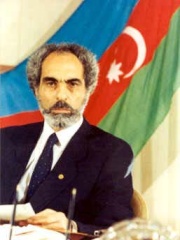
5. Abulfaz Elchibey (1938 - 2000)
With an HPI of 71.07, Abulfaz Elchibey is the 5th most famous Azerbaijani Politician. His biography has been translated into 41 different languages.
Abulfaz Gadirgulu oghlu Aliyev (24 June 1938 – 22 August 2000), commonly known as Abulfaz Elchibey, was a Pan-Turkist Azerbaijani nationalist, politician and Soviet dissident who was the first and only democratically elected President in post-Soviet Azerbaijan. He was the leader of the Azerbaijani Popular Front and played an important role in achieving Azerbaijan's independence from the Soviet Union. Elchibey was elected as the president of Azerbaijan in independent Azerbaijan's first free election. He served from 17 June 1992 until his ouster in a 24 June 1993 military coup backed by Russia that led to the installation of Heydar Aliyev as president. Elchibey's brief rule was the only post-Soviet period in which Azerbaijan has been democratic. During his rule, Elchibey sought to dismantle the old communist system domestically, such as the planned economy and the black market. In his foreign policy, he sought to re-orient Azerbaijan to the West. However, Elchibey's attempted reforms were put to a halt by the 1993 coup. According to historian Audrey Altstadt, Elchibey faced several major problems during his tenure as president: "the war in Nagorno-Karabagh (with loss of land and creation of refugees), inflation and related economic problems (including slow progress on an oil deal with foreign investors), and the remnants of Russian-Soviet control and influence of the old order. The most immediately pressing problem was unrest around Baku." During his tenure, Elchibey had to contend with an administration staffed by former Communists and military forces that were not under his control. He positioned himself as a pan-Turkist while holding hostile views towards Iran and Russia.

6. Artur Rasizade (b. 1935)
With an HPI of 68.42, Artur Rasizade is the 6th most famous Azerbaijani Politician. His biography has been translated into 47 different languages.
Artur Tahir oghlu Rasizade (Azerbaijani: Artur Tahir oğlu Rasizadə; born 26 February 1935) is an Azerbaijani politician who served as the Prime Minister of Azerbaijan from 1996 until 2018 under the authoritarian regimes of Heydar Aliyev and his son Ilham Aliyev. Thomas de Waal writes of Rasizade's tenure that he "had no political influence", "was unknown outside the country" and his "departure barely merited any commentary." Rasizade was a long-time Communist Party member during the Azerbaijan SSR period.

7. Ayaz Mutallibov (1938 - 2022)
With an HPI of 67.56, Ayaz Mutallibov is the 7th most famous Azerbaijani Politician. His biography has been translated into 37 different languages.
Ayaz Niyazi oghlu Mutallibov (12 May 1938 – 27 March 2022) was an Azerbaijani politician who served as the first president of Azerbaijan. He was the last leader of Soviet Azerbaijan, and first President of Azerbaijan from 18 May 1990 until 6 March 1992 and from 14 May until 18 May 1992. He rose through the ranks of the Azerbaijan Communist Party during Soviet Azerbaijan before becoming leader of the party in 1990. Later that year, the Supreme Soviet of Azerbaijan SSR elected Mutallibov as the first President of Azerbaijan SSR. In September 1991, amid the collapse of the Soviet Union and independence of Azerbaijan, Mutallibov declared himself President of Azerbaijan in an uncontested election. He was ousted from power in May 1992 when he tried to cancel the forthcoming presidential election.

8. Garegin Nzhdeh (1886 - 1955)
With an HPI of 67.09, Garegin Nzhdeh is the 8th most famous Azerbaijani Politician. His biography has been translated into 29 different languages.
Garegin Ter-Harutyunyan, better known by his nom de guerre Garegin Nzhdeh (Armenian: Գարեգին Նժդեհ, IPA: [ɡɑɾɛˈɡin nəʒˈdɛh]; 1 January 1886 – 21 December 1955), was an Armenian statesman, military commander and nationalist revolutionary. As a member of the Armenian Revolutionary Federation, he was involved in the national liberation struggle and revolutionary activities during the First Balkan War and World War I and became one of the key political and military leaders of the First Republic of Armenia (1918–1921). He is widely admired as a charismatic national hero by Armenians. In 1921, he was a key figure in the establishment of the Republic of Mountainous Armenia, an anti-Bolshevik state that became a key factor that led to the inclusion of the province of Syunik into Soviet Armenia. During World War II, he cooperated with Nazi Germany, hoping to secure Soviet Armenia's existence in case of Germany's victory over the USSR and a potential Turkish invasion of the Caucasus. Following an abortive attempt to cooperate with the Soviet Union against Turkey, Nzhdeh was arrested in Bulgaria in 1944 and sentenced to 25 years of imprisonment in the Soviet Union. He died in Vladimir Central Prison in 1955.

9. Ali Asadov (b. 1956)
With an HPI of 66.64, Ali Asadov is the 9th most famous Azerbaijani Politician. His biography has been translated into 46 different languages.
Ali Hidayat oghlu Asadov (Azerbaijani: Əli Hidayət oğlu Əsədov; born 30 November 1956) is an Azerbaijani politician serving as the Prime Minister of Azerbaijan following his appointment to the post on 8 October 2019 by president Ilham Aliyev.
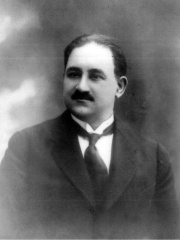
10. Mammad Amin Rasulzadeh (1884 - 1955)
With an HPI of 64.96, Mammad Amin Rasulzadeh is the 10th most famous Azerbaijani Politician. His biography has been translated into 36 different languages.
Mahammad Amin Akhund Haji Molla Alakbar oghlu Rasulzade (31 January 1884 – 6 March 1955) was an Azerbaijani politician, journalist and the head of the Azerbaijani National Council. He is mainly considered the founder of Azerbaijan Democratic Republic in 1918 and the father of its statehood. His expression "Bir kərə yüksələn bayraq, bir daha enməz!" ("The flag once raised shall never fall!") became the motto of the independence movement in Azerbaijan in the early 20th century.
People
Pantheon has 40 people classified as Azerbaijani politicians born between 1250 and 1995. Of these 40, 19 (47.50%) of them are still alive today. The most famous living Azerbaijani politicians include Ilham Aliyev, Artur Rasizade, and Ali Asadov. The most famous deceased Azerbaijani politicians include Heydar Aliyev, Arghun, and Nadezhda Alliluyeva. As of April 2024, 1 new Azerbaijani politicians have been added to Pantheon including Hasan Aliyev.
Living Azerbaijani Politicians
Go to all RankingsIlham Aliyev
1961 - Present
HPI: 75.61
Artur Rasizade
1935 - Present
HPI: 68.42
Ali Asadov
1956 - Present
HPI: 66.64
Novruz Mammadov
1947 - Present
HPI: 61.93
Isa Gambar
1957 - Present
HPI: 58.85
Zakir Hasanov
1959 - Present
HPI: 56.00
Leyla Yunus
1955 - Present
HPI: 55.09
Sahiba Gafarova
1955 - Present
HPI: 55.06
Arsen Avakov
1964 - Present
HPI: 54.02
Alexander Beglov
1956 - Present
HPI: 53.23
Jamil Hasanli
1952 - Present
HPI: 51.88
Elmar Mammadyarov
1960 - Present
HPI: 51.88
Deceased Azerbaijani Politicians
Go to all RankingsHeydar Aliyev
1923 - 2003
HPI: 77.80
Arghun
1250 - 1291
HPI: 73.02
Nadezhda Alliluyeva
1901 - 1932
HPI: 71.46
Abulfaz Elchibey
1938 - 2000
HPI: 71.07
Ayaz Mutallibov
1938 - 2022
HPI: 67.56
Garegin Nzhdeh
1886 - 1955
HPI: 67.09
Mammad Amin Rasulzadeh
1884 - 1955
HPI: 64.96
Fatali Khan Khoyski
1875 - 1920
HPI: 64.59
Mir Jafar Baghirov
1896 - 1956
HPI: 63.36
Vsevolod Merkulov
1895 - 1953
HPI: 61.27
Vladimir Dekanozov
1898 - 1953
HPI: 61.15
Gazanfar Musabekov
1888 - 1938
HPI: 59.13
Newly Added Azerbaijani Politicians (2025)
Go to all RankingsOverlapping Lives
Which Politicians were alive at the same time? This visualization shows the lifespans of the 20 most globally memorable Politicians since 1700.

